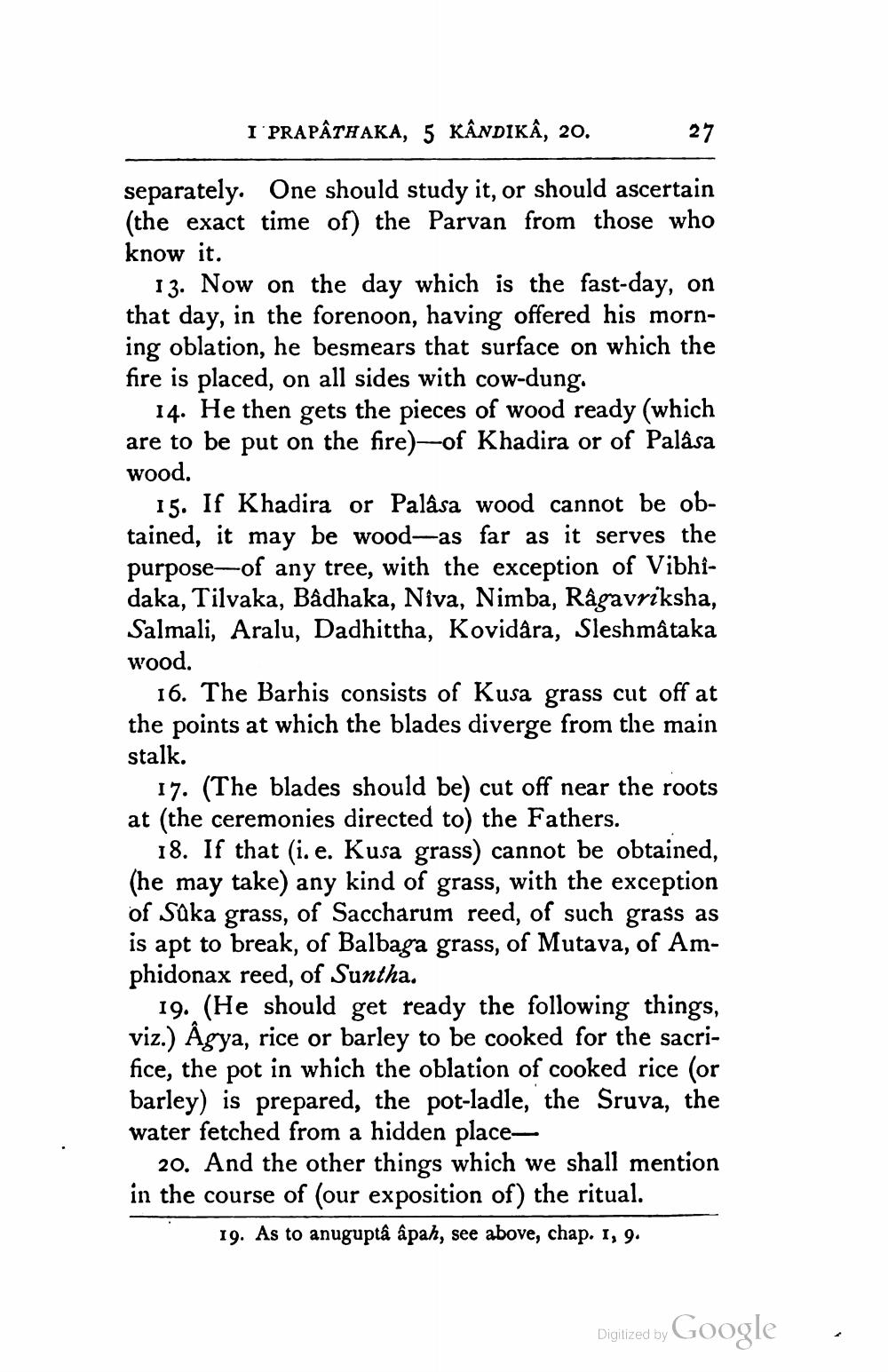________________
I PRAPÂTHAKA, 5 KÂNDIKÂ, 20.
separately. One should study it, or should ascertain (the exact time of) the Parvan from those who know it.
27
13. Now on the day which is the fast-day, on that day, in the forenoon, having offered his morning oblation, he besmears that surface on which the fire is placed, on all sides with cow-dung.
14. He then gets the pieces of wood ready (which are to be put on the fire)-of Khadira or of Palâsa wood.
15. If Khadira or Palâsa wood cannot be obtained, it may be wood-as far as it serves the purpose of any tree, with the exception of Vibhîdaka, Tilvaka, Bâdhaka, Nîva, Nimba, Râgavriksha, Salmali, Aralu, Dadhittha, Kovidâra, Sleshmâtaka wood.
16. The Barhis consists of Kusa grass cut off at the points at which the blades diverge from the main stalk.
17. (The blades should be) cut off near the roots at (the ceremonies directed to) the Fathers.
18. If that (i. e. Kusa grass) cannot be obtained, (he may take) any kind of grass, with the exception of Suka grass, of Saccharum reed, of such grass as is apt to break, of Balbaga grass, of Mutava, of Amphidonax reed, of Suntha.
19. (He should get ready the following things, viz.) Agya, rice or barley to be cooked for the sacrifice, the pot in which the oblation of cooked rice (or barley) is prepared, the pot-ladle, the Sruva, the water fetched from a hidden place
20. And the other things which we shall mention in the course of (our exposition of) the ritual.
19. As to anuguptâ âpah, see above, chap. 1, 9.
Digitized by
Google




